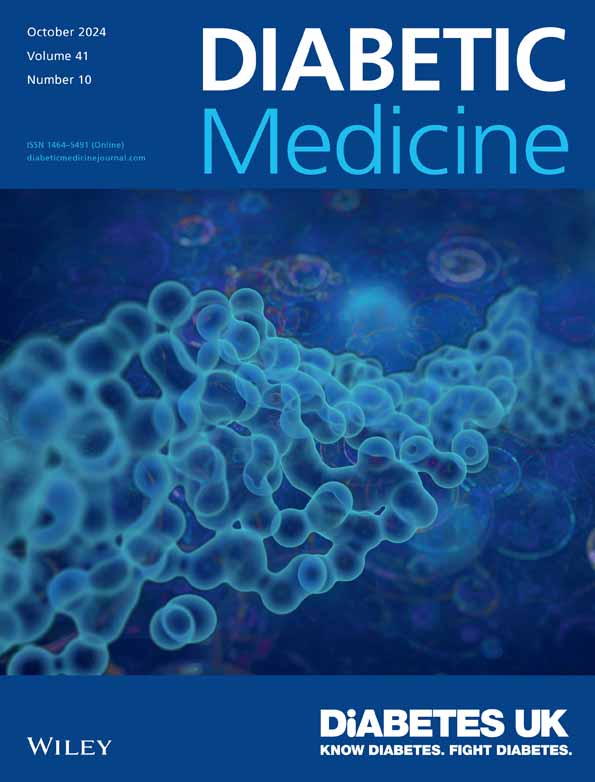The association between glycaemic variability and sleep quality and quantity in adults with type 1 and type 2 diabetes: A systematic review
Abstract
Aims
Individuals with diabetes frequently encounter sleep disturbances, which can detrimentally impact glycaemic management. We reviewed the relationship between sleep outcomes and glycaemic variability in adults with diabetes.
Methods
We systematically searched Medline, EMBASE and Cochrane Library (2002-March 2023) for studies evaluating sleep and glycaemic variability in adults with type 1 and type 2 diabetes. Among the 3049 records, 27 met the inclusion criteria (type 1 diabetes studies = 22). Due to methodological heterogeneity, a qualitative analysis was conducted.
Results
Most studies measuring sleep quality (5 out 7; 71%) reported a significant association with glycaemic variability in type 1 and type 2 diabetes. Sleep duration was not significantly associated with glycaemic variability in type 1 diabetes, whereas other sleep metrics yielded inconclusive results. Hybrid closed-loop pump interventions (n = 12) demonstrated varying sleep outcomes with improved glycaemic variability. Similarly, sleep interventions (n = 3) consistently enhanced sleep but not glycaemic variability. Limitations included moderate to high risk of study bias, confounders, methodological heterogeneity and limited type 2 diabetes data.
Conclusions
A potential association between sleep quality and glycaemic variability exists. However, associations with other sleep metrics remain elusive, with no discernible association between sleep duration and glycaemic variability in type 1 diabetes. Despite advancements in continuous glucose monitoring and ambulatory sleep monitoring, standardised sleep assessment methodologies are lacking in real-world studies. Establishing standard protocols for sleep assessment and defining optimal sleep targets are crucial for meaningful comparisons between studies. Understanding the complex interplay between sleep and glycaemic variability holds promise in improving diabetes management and sleep health.


 求助内容:
求助内容: 应助结果提醒方式:
应助结果提醒方式:


